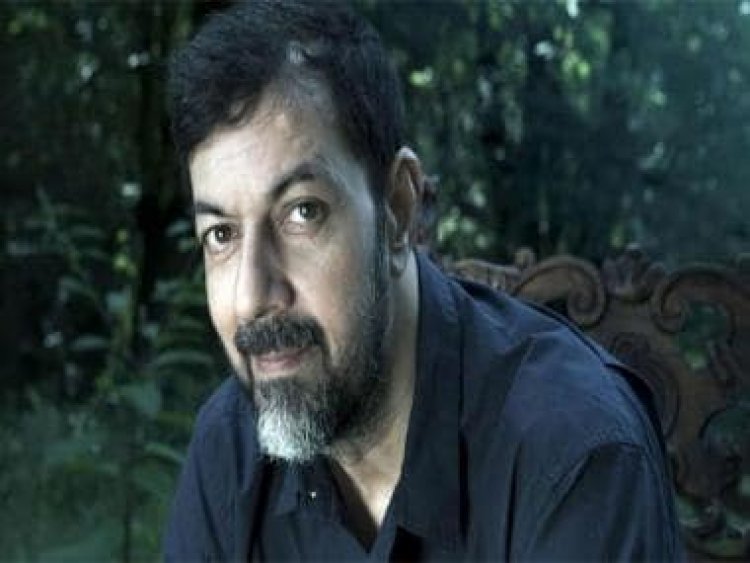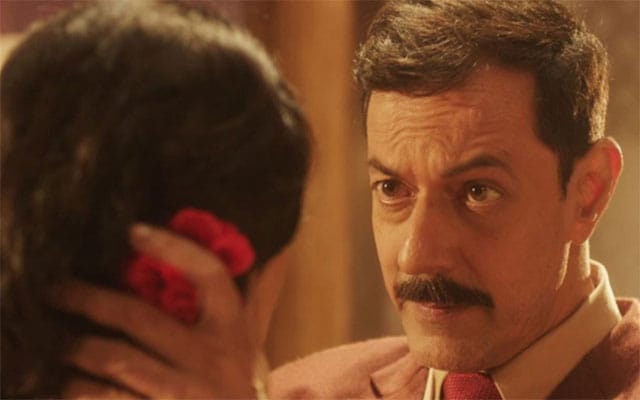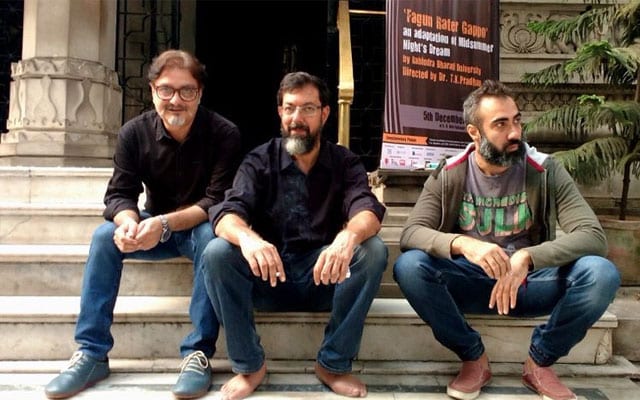Rajat Kapoor: The man who dons many hats
Rajat Kapoor: The man who dons many hats

Filmmaker and actor Rajat Kapoor was one of the creators who rose to prominence during a fertile period for Indian indie cinema during the 2000s. Although he became a familiar face through his acting roles in Dil Chahta Hai (2001) and Monsoon Wedding (2001), Kapoor’s real contribution to this era were the films that he co-wrote and directed — Raghu Romeo (2003), Mixed Doubles (2005) Mithya (2008). These stories featured obsessive protagonists, typically in the middle of an identity crisis, going to great lengths to resolve said crisis. Kapoor’s films continue to present existential puzzles — Aankhon Dekhi (2014) or the more recent RK/RKay (2021) come to mind — and they do so with a rare lightness of touch.
Kapoor’s next acting role comes in director Nawneet Ranjan’s Kora Kagazz, where he plays a theatre actor conducting workshops for vulnerable children at a juvenile home. FirstPost caught up with Kapoor in New Delhi, during promotions for the film. The following are edited excerpts from the conversation.
So many characters from your movies are unable to distinguish between illusions (movies, daydreams, fantasies) and reality, whether it’s Mithya or Aankhon Dekhi or even RK/RKay. Where did this narrative strand begin in your work and what are some of the movies/books that informed it?
I see the pattern, but I define it a bit differently. When I was writing these stories, to me they were about identity. A basic ‘Who am I?’ question. I’d say that up until, say, Mithya I did not see this pattern for what it is but after that I realized that this was a recurring theme in my work. My cameraman pointed out to me that he was constantly shooting obsessive men. Sunil in Mixed Doubles is obsessed with the idea of swapping (romantic partners), for example. Raghu is convinced that Neetaji is real in Raghu Romeo and he becomes obsessed with this TV character. So for me these were stories about confused identities.
A lot of people told me that they were reminded of the Woody Allen film Purple Rose of Cairo during RK/RKay, but for me it was more like the play Six Characters in Search of an Author by Luigi Pirandello.
You’ve spoken in the past about your teachers, the filmmakers who had a formative influence on you: Kumar Shahani and Mani Kaul. And while several of their films do have moments of startling humour, it’s a very different style of humour from your own—yours is ‘clownish humour’ as you’ve described it in the past. Talk us through the process of finding your own voice.
In the late 80s and early 90s, when I was making some of my first short films, I was still very much under the influence of Kumar Shahani. Private Detective, which was my first full-length film in 1995 (nobody’s seen it, I think) was a film noir story. A murder, there’s five people involved, the audience knows everything but the characters don’t. But I was constantly thinking, ‘how would Kumar approach this shot’, ‘how would he shoot in this light or at that time of the day’. It took me a while to break out of that derivative mould and find my own voice, my own preoccupations. As Mehboob says in RK/RKay, ‘Meranaseeb meri mutthi mein hai’ (My fortune rests within the palm of my hand).
In 1997 I did a play called ‘Hypnothesis’, with clowns and then in 1999 another play called ‘C For Clown’, and I think both of these projects really helped me find my voice.
The clown bits in your films also have something Chaplinesque about them, don’t they? In the opening scene of RK/Rkay, the doors opening and closing had a Chaplinesque air, I thought, and not just because of the similar attire.

Certainly, certainly. I love watching both Chaplin and Buster Keaton. I admire their work, it still moves me and I fully understood their influence on my work once I did the clown plays. I’ve been working with clowns in theatre now for over 20 years. After C for Clown we also did Hamlet with clowns, we did King Lear with clowns, and now there’s Macbeth and As You Like It, too. That’s a lot of clowning! If you can achieve one per cent of what Chaplin did you’re doing pretty well.
I once read a Wes Anderson interview where he talks about using the same revolving set of actors and crew members quite often in his films down the years; he speaks about the experience being closer to a theatre repertory than the process of filmmaking. What has been your experience in this context, given that you also have recurring actors (Ranvir Shorey, Vinay Pathak) and crew members (cinematographer Rafey Mahmood, sound designer Resul Pookutty) across your filmography?

I’ve had the same cameraman for nine films, the same editor for eight films, same for the actors as well, Ranvir Shorey, Vinay Pathak these are the guys I love working with. For me it’s also about a sense of loyalty. Beyond a point you just develop a comfort level with people, and they often end up becoming your friends. You know how to talk to them, how to negotiate with them, how to work around everybody’s schedules, how to be as accommodating as possible within the constraints of production. Now, even if I am sick of these people (laughs) I will still want to work with them again, for all my future projects. Having said that, they bring great value to all my stories, and I’m very lucky to have them alongside them. Ranvir, for example, is just a fantastic actor, he’s able to become so many different kinds of people.
To what degree is improvisation a part of your process? For example, I felt that there was a great deal of it in Kadakh, which isn’t exactly a closed room mystery (the audience is shown the death right in the first scene) but there’s that same sense of desperation in the story.
A huge part, I’d say. Improvisation is a huge part of the process. I get more excited about what’s not written than about what’s written in the script. So, I encourage my actors to improvise, ad-lib, stay in the moment. During my first film, Private Detective, I told my cameraman Rafey that I didn’t want to do a shot breakdown (a detailed plan of what shots needed to be a part of any given day’s footage). Moreover, I told him that I would never do a shot breakdown and till date I haven’t. When we are shooting at a given location, we know what scenes we are doing that day but nothing beyond that. I ask my actors, in fact, before we begin shooting, whether they have any thoughts as to how we should shoot that scene. All the possibilities of a scene are kept open that way. I am a great believer in staying in the moment: I know that what I want tomorrow may be very different from what I want today, everything has changed, the whole energy on the set has changed. Same for the actors.
One last question, this time about business and not art. In the 2000s, when you made Mithya, Raghu Romeo et al, there was a space in our theatres for what was then called ‘multiplex cinema’. Then the recession came and those opportunities dried up. Do you feel we’re heading towards that kind of a phase again? And if so, is there something that smaller creators can do to fight it, some collective bargaining, perhaps?
I think we’re already in that kind of massively unequal phase in terms of screen allotment. It was very tough to get RK/RKay a theatrical release at all, and even after getting them, we were allotted very few screens and bad timings, 2pm shows, stuff like that.
I’m not sure what we can do by way of collective bargaining as directors, to be honest. It’s not like if I and Anurag Kashyap and Sudhir Mishra go and talk to the theatre owners we will achieve anything! Ultimately the theatres will want, you know, Akshay Kumar films and Deepika Padukone films during times of economic uncertainty, especially.
Aditya Mani Jha is a Delhi-based independent writer and journalist, currently working on a book of essays on Indian comics and graphic novels.
Read all the Latest News, Trending News, Cricket News, Bollywood News, India News and Entertainment News here. Follow us on Facebook, Twitter and Instagram.
What's Your Reaction?



























































